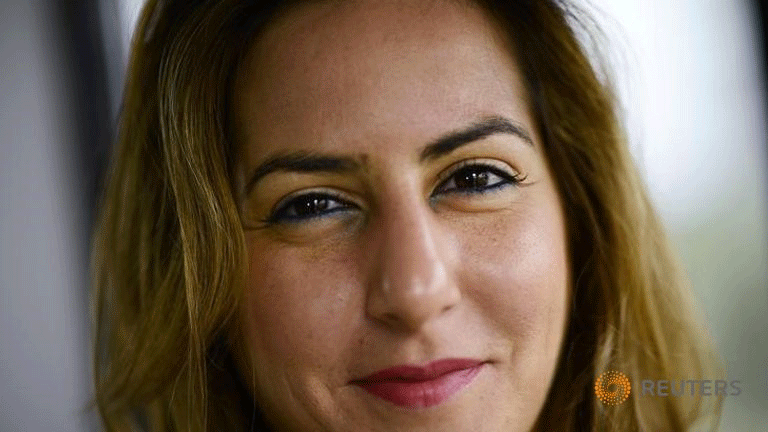Lebanese journalist convicted of defying Hague court order
THE HAGUE: An international court in The Hague on Friday found that a Lebanese journalist had exposed witnesses in the 2005 assassination of former Prime Minister Rafik al-Hariri and defied a court order to remove the material from a website.
But the Special Tribunal for Lebanon acquitted her of interfering with the course of justice. Al-Jadeed, her TV station, was found not liable on both counts.
Khayat, who accuses the tribunal of gagging the free press, will be sentenced on September 28. She could face a fine of 100,000 euros and seven years in prison for contempt of court - though this would be an unusually lengthy term for an international court.
Judge Nicola Lettieri said that there was no evidence that identifying the witnesses had undermined public confidence in the tribunal, but said Khayat should have taken the material down when ordered to do so.
"The individuals who testified stated that they had been afraid ... after the airing of the episodes," he said, but said there was no evidence linking their fears or public unease with the broadcasts.
Prosecutors said the reports undermined the court by exposing witnesses to the risk of reprisals and discouraging them from coming forward with evidence.
Defence lawyer Karim Khan said Khayat would appeal her conviction on the "lesser charge", adding that Al-Jadeed's full acquittal was a vindication.
"A media house like Al-Jadeed that has lost people by conveying the news and trying to be a force of moderation in a hostile environment has paid a price financially by defending this case," he said.
Lettieri said that, though the witnesses' faces were blurred and their voices disguised in the 2012 broadcasts, they could still be identified from context.
Hariri and 21 others were killed in a waterfront bomb blast in 2005 that upset a fragile peace in Lebanon, dragging the country back to the brink of civil war.
Five suspects, all linked to the Lebanese Shi'ite Muslim militant movement Hezbollah, which is part of the current Beirut government, have since been indicted for the killing. They remain at large and are being tried in absentia.
Supporters of Hezbollah accuse the tribunal of serving US and Israeli interests. In April, Khayat told a court hearing that her reports had aimed to expose alleged leaks coming from the tribunal and investigate its use of public money.
The court was set up with United Nations support after Lebanese politicians said their judicial system could not cope with the investigation. It is funded jointly by Lebanon and Western and Gulf Arab countries.






